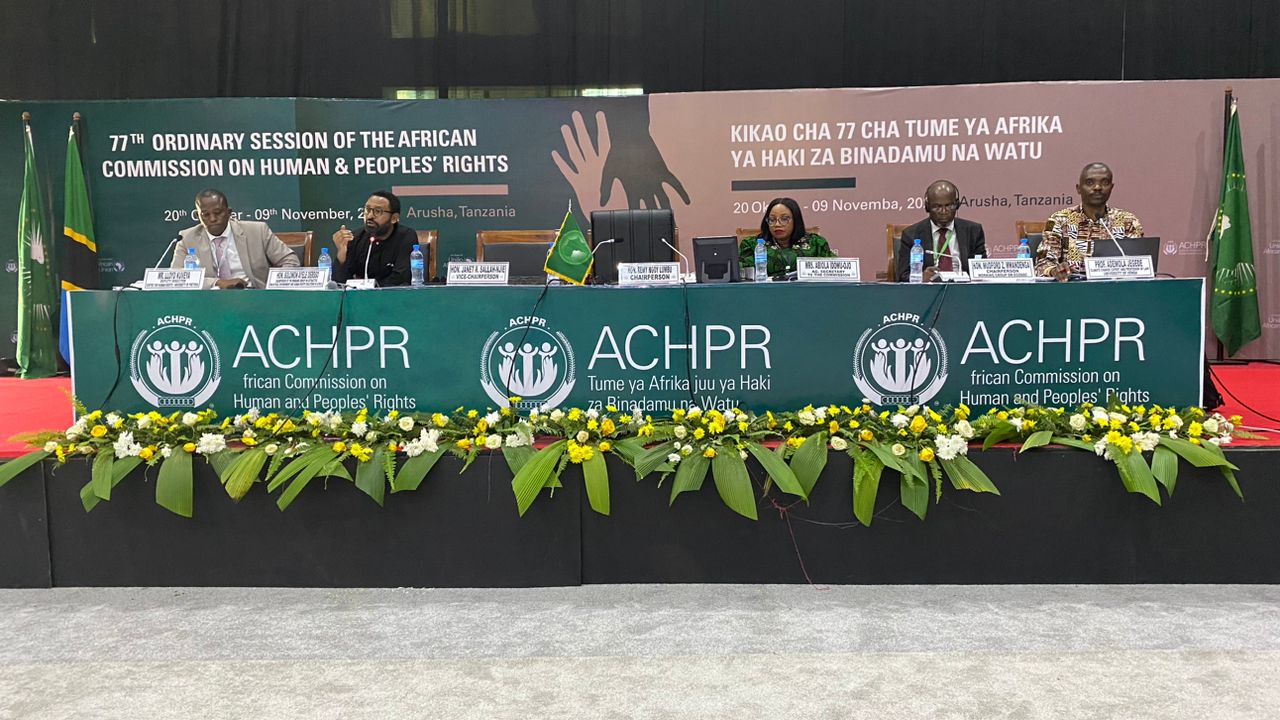The African Commission’s Working Group on Extractive Industries, Environment and Human Rights in Africa (WGEI) and the Working Group on Economic, Social and Cultural Rights launched, on 23 October 2023, consultations on the Study on the Impact of Climate Change on Human Rights in Africa during a panel held at the 77th ordinary session of the African Commission. This study examines the adverse consequences of the observed and projected climate change on the enjoyment of human rights. It further explores the obligations of States and clarifies the role of the African Commission in this regard. The study is a culmination of the African Commission’s efforts to protect human rights amid the rising climate change-related challenges. These efforts started in 2009 when the Commission adopted a resolution to conduct this study through to the adoption of two other resolutions in 2014 and 2016 reiterating, on the one hand, the need for such a study and mandating the two working groups to lead the process, on the other.
As the African Commission highlights, the idea to conduct the study was ‘premised on the need to address the expounding effects of climate change on the African continent which is highly exacerbated by indiscriminate human extraction activities resulting in extreme weather patterns, rising sea levels, increased and intensified natural disasters, water shortages, biodiversity loss and heightened spread of disease among others, which threaten the life, integrity and livelihoods of the African people’. According to Commissioner Solomon Ayele Dersso, Chairperson of the WGEI, the study is timely as it clarifies several legal and policy questions. These questions encompass the obligations imposed on businesses and States to protect human and peoples’ rights when addressing climate change concerns.
Enhancing participation
As the lead author of the study noted, the study unpacks the plight of the most vulnerable groups who may be rendered more vulnerable as a result of climate change. Based on the study’s preliminary findings, the most affected people are women, children, young people, Indigenous peoples, local communities, persons with disabilities, older persons, displaced people and other vulnerable communities such as the environmental defenders and climate activists. Based on the principle of participation provided for under relevant African Union treaties, the study finds that States should safeguard the equitable participation of these groups without discrimination on any ground in all climate-related actions.
How to provide feedback
The draft study is currently available on the African Commission’s website in English and French. States, intergovernmental organisations, national human rights institutions, NGOs and other interested stakeholders should submit their comments by 30 November 2023.




